Good news, everyone! I don’t have an aging hulk of a CRT television in my living room anymore. No, I have a high definition television, thanks to the power of my mind. At least, that’s what a recent study tells me will happen if I wish hard enough.
studies

Homeowners With Good Credit Are More Likely To Strategically Default
Here’s an interesting discovery about mortgage defaults from the LA Times:

Organizations Start To Bail On Smart Choices Campaign
Smart Choices, the pseudo-science marketing campaign, seems to be circling the drain.

Who Uses Coupons The Most? Affluent Suburbanites
The Nielsen Company—the people responsible for getting good TV shows canceled—just released a survey of coupon users. It turns out affluent consumers (those who make $70k or more annually) use coupons more frequently than the average U.S. household. Those who use coupons the least are from either low-income, one-member, male-only, African-American, or Hispanic households.

Congratulations Americans, We Pay The Most For Cellphone Service
A new survey from the Organization for Economic Cooperation and Development (OECD) compared annual costs around the world for consumers who have cellphones, and the U.S. is in the top three for most expensive. How expensive? DSLReports notes that “on average, the OECD found that Americans pay $635.85 on cell phone service, compared to $131.44 per year in the Netherlands or $137.94 per year in Sweden.”
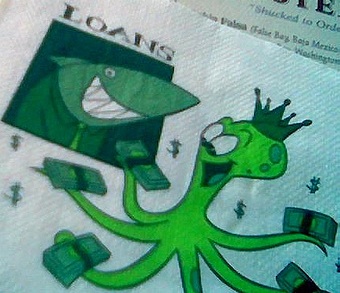
Credit Unions Dive Into The Student Loan Market
Private loans are the worst type of student debt, but the best place to get them may be your local credit union. Like most credit union products, their loans are usually a better deal with more favorable terms than similar loans from bigger banks.

It's Official: Sunbeds Cause Cancer (But Moles Are Far Worse)
The BBC reports that there is now conclusive evidence that tanning beds can cause cancer—and not just Tacky Cancer, which makes you look orange, but real live go-see-a-doctor cancer. However, sun exposure and tanning bed radiation both pale in comparison to your mole count, according to an earlier report.
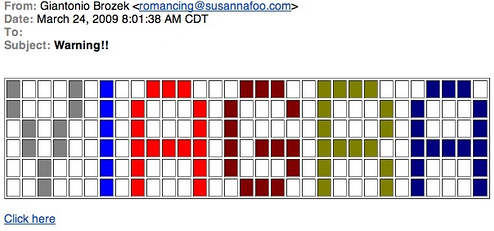
Why Is Spam Around? Because 12% Of Readers Actually Try To Buy The Stuff
Why, in a rational world, does spam continue to exist? Because someone you know—or maybe it’s you—has actually tried to buy something from it, a new study finds. Find that person and beat him (or yourself) with a stapler.

Is Bottled Water Safer Than Tap Water? Please…
Bottled water isn’t any safer than tap water, and could actually be more dangerous, according to a report from the Government Accounting Office. The big difference lies in the government regulator: tap water is covered by the Safe Water Drinking Act, administered by the aggressive and powerful Environmental Protection Agency, while bottled water falls under the Food, Drug, and Cosmetic Act overseen by the powerless anything-goes industry-lovers over at the Food and Drug Administration.

Cute Baby Photos Can Help Recover Lost Wallets
Strangers are more likely to return lost wallets containing photos of cute babies, according to British researchers. The scientists sprinkled 240 wallets across Edinburgh last year with pictures of either a smiling baby, a puppy, a “happy family,” or a “contended elderly couple.” It turns out nobody cares about your pooch, retired parents, or smugly superior family life. But that cute wittle baby? Apparently it triggers a “compassionate instinct towards vulnerable infants that people have evolved to ensure the survival of future generations.” Finally, an everyday use for evolution!
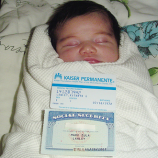
Some SSNs Can Be Guessed Using Birthdate And Location, Say Researchers
It turns out our Social Security numbering system, which launched in 1936, isn’t very foolproof against some types of hacking. The New York Times reports that researchers at Carnegie Mellon University “used statistical techniques to predict Social Security numbers solely from an individual’s date and location of birth.”

100% All Natural Plumped Chickens Are Stuffed With Water And Salt
Do you like overpaying for salt and water? Then “100% All Natural” chicken breasts might be for you! Just look for the labels that boast “enhanced with up to 15% chicken broth,” and you can be sure you’re overpaying for the saltiest, most water-logged chicken that industrial food processors can design. So how does all that chicken water get into the chickens, you ask? Hit the jump for the delightfully graphic description…
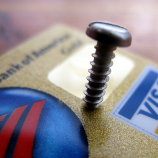
Study Of Credit Unions Indicates CARD Act Will Benefit Consumers
Two Harvard doctoral students in economics compared how credit unions and banks operated their credit card divisions, and concluded that the recent CARD act “is likely to bring about moderate, and even positive, changes,” as banks begin to emulate parts of the fairer business model of credit unions. Specifically, they say, all the doom and gloom from the banking industry about how consumers will get shafted by the new rules is mostly fearmongering.
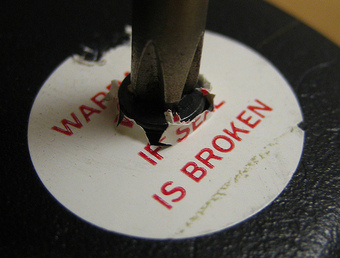
Why Do You Buy Extended Warranties?
We all know that most extended warranties are wastes of money that generally go unused, so why do people buy them? According to a study in the Journal of Consumer Research, guilt-racked and nervous consumers are willing to shell out the extra cash to buy a little peace of mind…

Most Bankruptcies Caused By Health Problems Suffered By People With Health Insurance
A recent Harvard study tells us that health problems cause more than half of America’s bankruptcies, and that the vast majority of people seeking bankruptcy protection have health insurance. The study paints a hauntingly familiar picture: people get sick, insurance covers nothing, so they’re forced to mortgage their homes to stay alive.

Health Insurers Own Tobacco Stocks Worth Nearly $4.5 Billion
Major health insurance companies own nearly $4.5 billion worth of stock in tobacco companies, according to a Harvard University study. It kinda makes sense: health insurers know tobacco sickens people, and so as long as people are smoking, why not profit from the killer? It’s what David Himmelstein, a co-author of the study, calls “the combined taxidermist and veterinarian approach: either way you get your dog back.”




